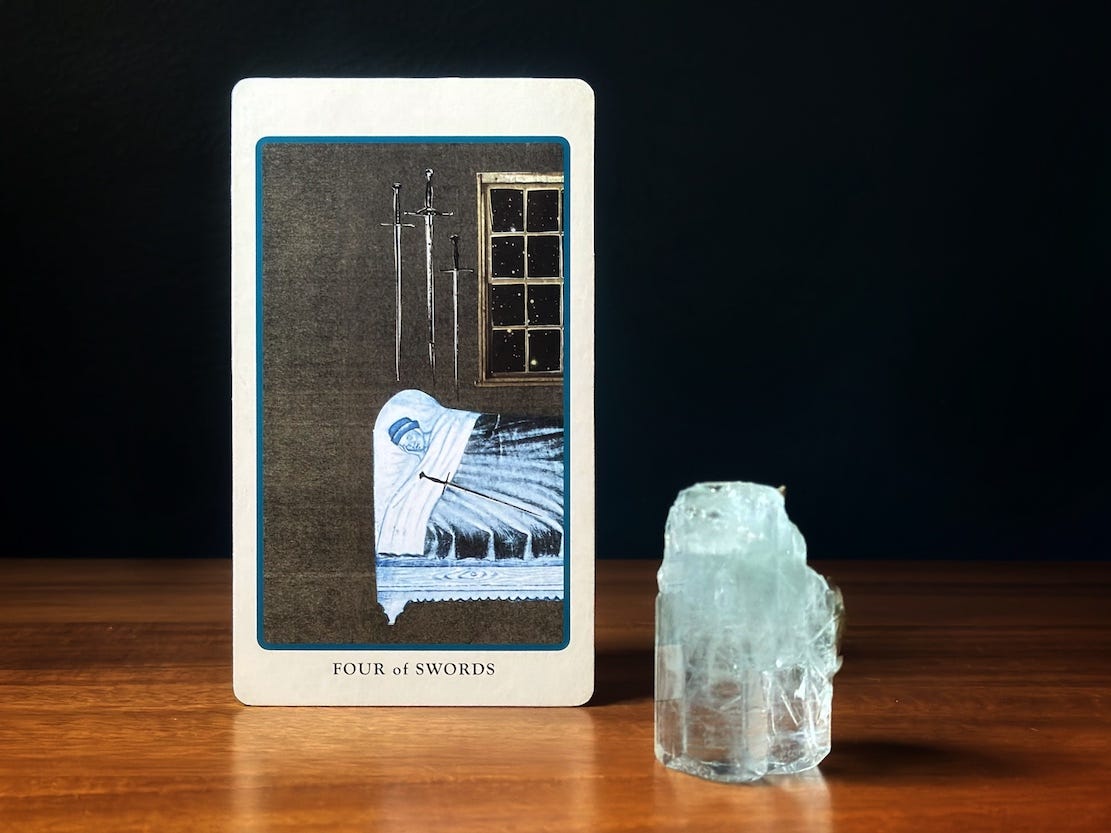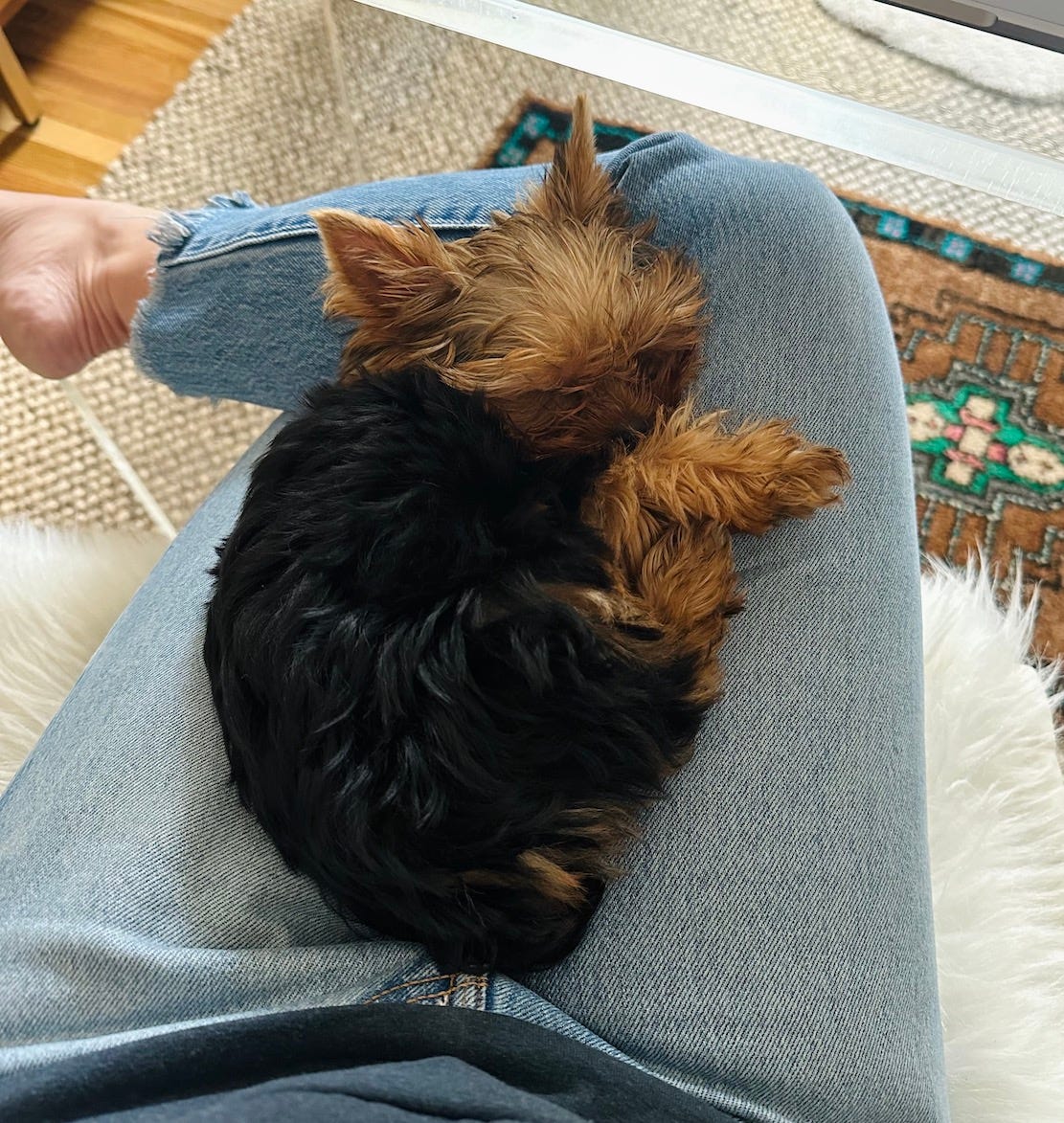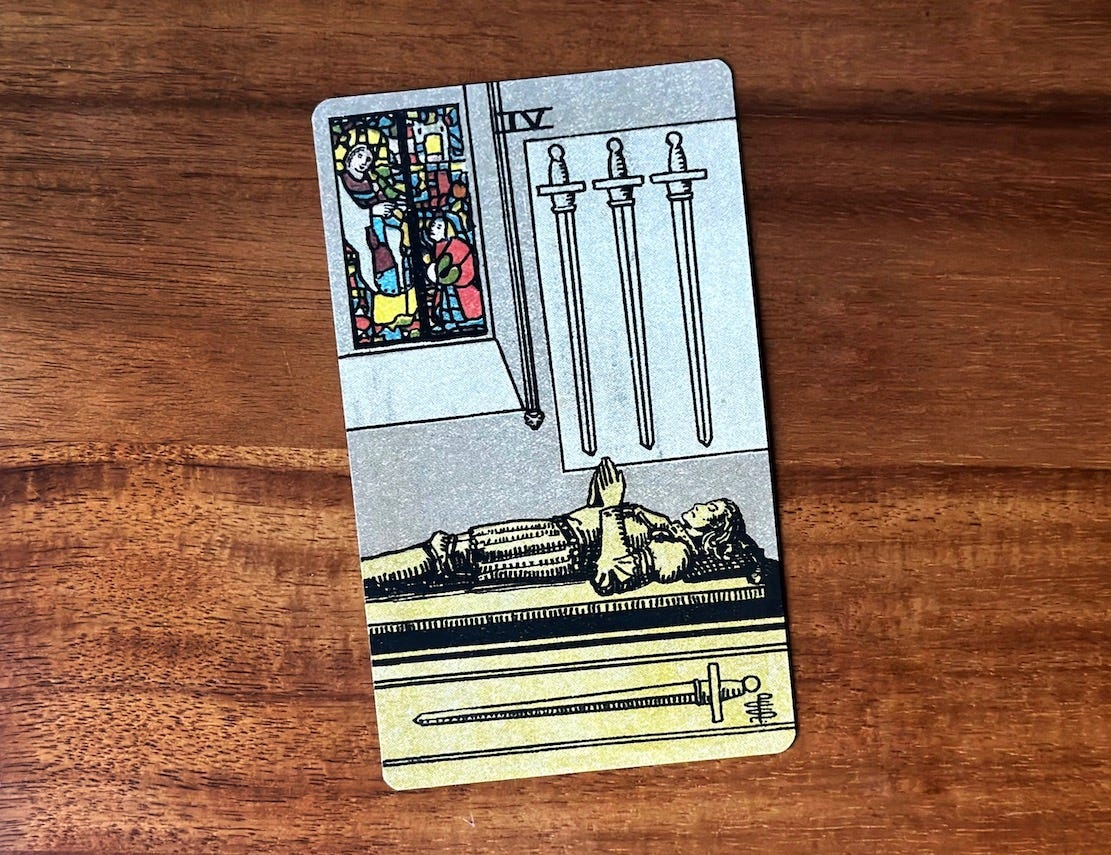On my way to the doctor, I pass a book propped on someone’s front stoop. Yes, this is anthropomorphizing, but I swear it looks sad. Once upon a time, this book was a big bestseller. And now here it is, on the cold, hard ground, as the sky grows heavy with threat of snow. I feel wounded at the sight of it.
This isn’t uncharacteristic; I’ve been known to have feelings at the sight of, say, an abandoned stuffed animal at the park. (I blame The Velveteen Rabbit.) I’ll stop and remind myself that despite its big button eyes, it is not sentient. It does not have a soul. The child will get over it. The world spins on.
But I’d posit that a book (or any written work, or piece of art) does have a soul. It’s imbued with the essence of its creator, given life in the imaginations of those who encounter it. If it’s lucky, a work may have many lives. Whether they begin in a shop or a stoop or a library (or anywhere else, for that matter) is of little consequence.
What I’m reacting to, I’m sure, is my own fear reflected back at me. What becomes of our words after we release them? What becomes of our stories, our sayings, our legacies? Like so many things, it is beyond our control.
A friend recently published a novel and shared one funny observation. When readers send her messages to say they enjoyed it, they’ll sometimes include quotes that particularly touched them. She is always surprised, she told me, that the lines they offer as stand-outs are never ones she’d expect.
Writing for your audience is a bit like trying to read the room when no one has arrived yet. You cannot predict what will strike someone, nor how it will move them. But that is not your responsibility.
Once words are out in the world, they are no longer ours. They belong to whoever reads, hears, or otherwise ingests them. How they are interpreted is not our business.
This is terrifying. It is also liberating.
Some warnings received at various junctures:
“Choose your words wisely.”
“Do not share things on the Internet.”
“Be careful what you put in writing...it might come back to haunt you.”
This is decent advice for living and horrible advice for writing. Sure, it pays to be mindful of what you put in corporate emails. Don’t leave a trail if you’re breaking the law or don’t wish to be haunted by old tweets. But if you want to write — anything, ever, from a journal to fiction to evocative emails — these words are certain death.
Choose your words wisely with reckless abandon, trusting you can edit them later.
Be careful brave with what you put in writing… it might come back to haunt you help someone.
Another classic: “Write what you know.” This has it backwards. In my experience, you discover what you know by writing.
I’ve known folks who never revisit old work, who don’t read their own interviews, who only move forward, like they’re in a car chase with the past.
And yet. Old work has a way of finding you.
It haunts you like awkward yearbook photos, the literary equivalent of sparse eyebrows, half-grown-out bangs, experimental fashions that didn’t pan out. Some part of you believed to be safely buried shows up uninvited, offering a ghostly hello. It speaks in lines you have no memory of ever having written.
But it comes bearing a truth: We devote so much anxiety to what we say and how we say it. The true phantom is what remains unsaid.
We recently welcomed a new dog into our family. I joke that she is a bibliophile, as she’s never met a book she doesn’t want to consume.
“The author worked very hard to write that,” I explain, wrangling a hardcover from her needly jaw. “And the agent to sell it. And then a person spent many hours editing, and another copy editing, and another proofreading.”
She stares at me, unmoved.
“Meanwhile, the sales and marketing and publicity teams were trying to get the book in front of people’s eyes, so that booksellers could get it into people’s hands. So we could appreciate it. But not with our teeth!”
She blinks. My words amount to a whole lot of sound. But she grasps my tone, and that is everything.
It’s not the words themselves we cling to; it’s their essence. It’s the parts we can feel.
On my way home, I notice the book is gone. Someone plucked it from the stoop, ushering it into its next life.
And then it begins to snow.
Lately I’ve been feeling called to explore more personal writing, to experiment more, and to take more risks. My inclination is to share these pieces with my cherished paid subscribers, who have pledged their support (and don’t mind hearing from me on a regular basis).
I loathe a paywall, which means such pieces (like last Sunday’s letter or this essay from early this month) will go only to the paid list. I share this not to drum up new paid subs (though I’d love for you to join us!), but so we’re all on the same page.
Free subscribers will continue to get the Sunday letter once a month, at a minimum.
As always, it’s important to me that this community is accessible to all, so if you’d like a paid subscription but it’s currently beyond your means, please email me and I’ll extend you a comp, no questions and no judgment. ❤️
Thank you so much for being here. I appreciate your support.
Card of the Week
Here is this week’s card for the collective, as well as some thoughts to carry into the days ahead. As most modern readers will tell you, the tarot is not about fortunetelling, nor is it about neat, definitive answers. The cards are simply one path to reflection, a way of better knowing ourselves and others through universal themes. If this reading resonates with you, great! And if not, no worries. Take whatever may be helpful and leave the rest.

Speaking of words, there are so many that find their way into the zeitgeist, the terms and trends that come to define a particular period. A.I. Literally. Narcissist. Doggo. Rizz. Hellscape. Stanley Cup.
One who’s been making repeat appearances since, oh, 2020? Burnout.
Burnout has been busy. And so have we.
The Four of Swords does not present a new concept. But its medicine is so very geared for these times.
This card’s message can be summed up in one word: Relax.
It does not mean “relax” the way it’s often proffered as a useless command to one who is anxious. It means relax in the deep, delicious sense that only comes after the third day of a vacation. Or at a spa, getting a cranial massage, phone locked safely out of reach. Or that feeling that washes over you in the presence of an ocean, or a mountain, or the boundless starry sky, where the sheer scale makes your worries fall away.
If you scoffed when you read that, well, me too. But when relaxation becomes the stuff of myth, that’s also when it’s necessary.
There are many versions of the famous Zen quote, “Sit in meditation for 15 minutes. Unless you are too busy; then sit for an hour.” The same wisdom applies to anything restorative.
At first glance, this card looks somber, but its story says otherwise. When a knight returned safely from battle, they would retreat to their spot in the funeral complex (often prepared beforehand), basking in gratitude and humility to have made it back alive. Only after this grounding exercise did they turn their sights to what came next.
What looks, at first glance, like an image of defeat is actually a point of reflection, a moment of transcendence, a scene of renewal.
We live to fight another day.
This week’s message is about regrouping and emerging with a shift in perspective. In tarot, swords are tools, allowing us to cut to the heart of the matter, to clear away anything stagnant (particularly in our thinking) that does not serve us.
“Rest” does not merely apply to your physical form. It can also mean resting your judgments. Resting your expectations. Resting the voice that insists things could (or worse, should!) be better.
The Four of Swords challenges us to see relaxation not as a luxury, or even a necessity, but as an art form.
How will you practice this art? What scene will you set, what tools will you employ? Will you elevate the experience with a soundtrack, or a snack, or a story? What curiosity will you bring?
There are times when rest feels especially delicious, after a long day or arduous journey, but it is always beneficial. And it doesn’t need to be earned.
With that in mind, this card implores you: Take a nap, take a break, take a walk around the block. Put the phone away. Employ noise cancelling headphones. Hide in the bathroom with a novel. Abscond to your car.
Whatever it takes, take a breath.
Long, slow, full.
And then another.













The Velveteen Rabbit completely fucked me up. As did a couple other books. I still absolutely know that all stuffed animals are alive, including dog toys, which can never be lying on their sweet faces or they will suffocate. Likewise, I can't wrap stuffed animals as presents because they will suffocate. I could go on. The list is long.
I love this post. I felt like I went on a road trip with you. A road trip I really needed! I look forward to the risky writing yet to come!
Also: I hope the doctor visit was routine?
Oh, WOW. “Writing for your audience is a bit like trying to read the room when no one has arrived yet. You cannot predict what will strike someone, nor how it will move them. But that is not your responsibility.”
So, so good, Caroline. Thank you for sharing *your* words & letting them land uniquely with *me* ✨